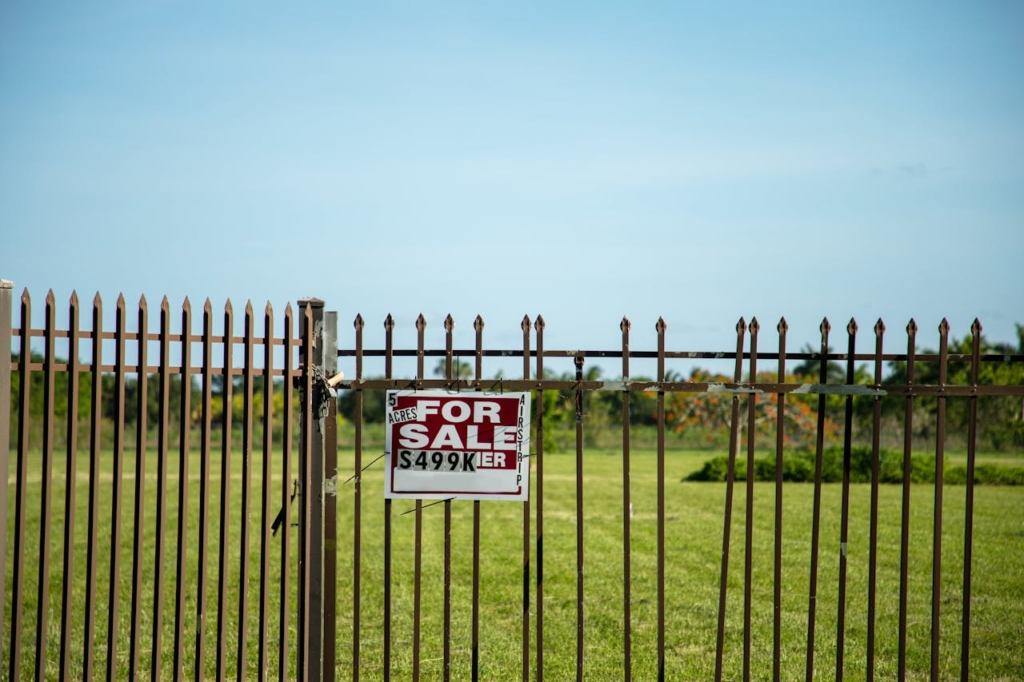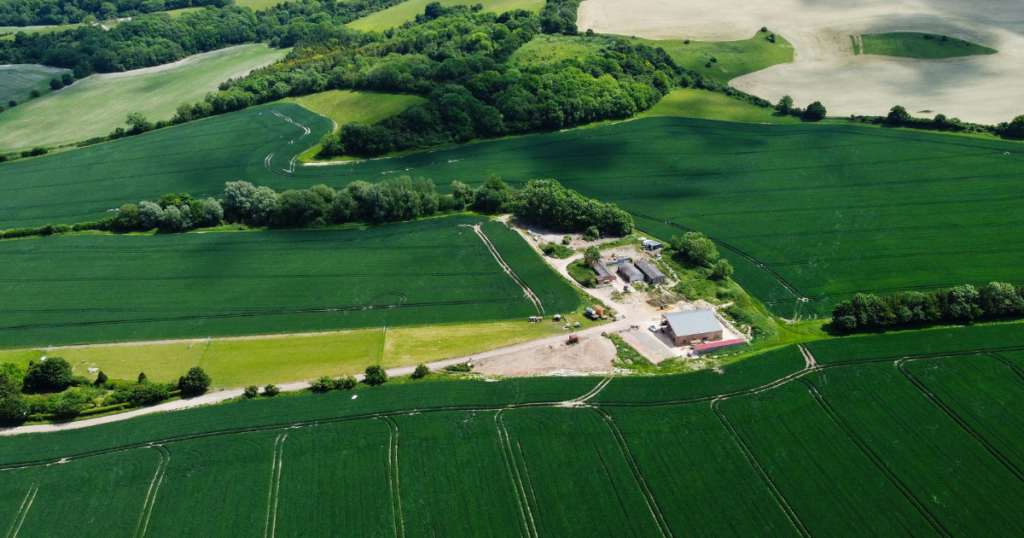It’s key to know the Kenyan land market and the types of land ownership, like Freehold and Leasehold if you want to buy land in Kenya. You want to make a safe investment and avoid scams. You must follow the law, as Section 66 of the Constitution of Kenya requires. The Kenyan land market has many opportunities for owning land. But, be careful, as about 40% of land deals might be fraudulent.
their name. Do your homework well to avoid scams. Scams are common, with over 30% of buyers facing them. It’s vital to work with trusted sellers and experts.
Knowing the laws, like the Physical and Land Use Planning Act (2019), will help you to make smart choices in the Kenyan land market.
Key Takeaways
- Understand the types of land ownership in Kenya, including Freehold and Leasehold.
- Verify land ownership status and ensure the title deed is in the seller’s name.
- Conduct thorough due diligence to avoid fraudulent transactions.
- Work with reputable sellers and professionals to minimize the risk of land scams.
- Understand the legal framework governing land transactions, including the Physical and Land Use Planning Act (2019).
- Be aware of the estimated costs for land purchase, including purchase price, legal fees, and survey fees.
- Recognize the importance of using traceable payment methods to avoid disputes or loss of funds.
Understanding the Kenyan Land Market

When you think about land ownership in Kenya, there’s a lot to know. The laws and rules in Kenya are clear about using land well and fairly. You need to understand the different ways to own land, like freehold and leasehold. Also, knowing the types of land, like homes, businesses, and farms, is key.
The Kenyan land market trends change due to many things. Demand, where the land is, and government rules all play a part. The National Land Commission (NLC) says all land must be registered by law. The Community Land Act of 2016 also has rules for community land, saying County governments must protect it for the people.
When you’re buying land in Kenya, consider a few things:
- Where the land is and what it’s for
- What the market is like and the prevailing prices
- The laws and rules you must follow
- Getting help from experts, like lawyers and surveyors, to check the land and make sure it’s right
Knowing the Kenyan land market will enable you to make good choices when buying or selling land. It’s important to keep up with the latest Kenyan land market trends. Also, getting advice from professionals can make your deal go smoothly and successfully.
Essential Documents Required to Buy Land in Kenya
Buying land in Kenya needs the right documents for a smooth deal. You’ll need a sale agreement, title deed, land search certificate, transfer forms, and proof of stamp duty payment. These documents protect your rights and prevent legal issues.
A sale agreement is a contract that outlines the sale terms, like price and payment details. It’s key to avoid any confusion. Also, a title deed proves you own the land and is needed for transferring ownership.
Other important documents include a land search certificate and transfer forms. You also need proof of stamp duty payment, a tax on land purchases. Here’s a list of the main documents for buying land in Kenya:
| Document | Description |
| Sale Agreement | Legally binding contract outlining the terms of the sale |
| Title Deed | Proves ownership of the land |
| Land Search Certificate | Verifies the ownership of the land |
| Transfer Forms | Facilitates the transfer of ownership |
| Proof of Payment of Stamp Duty | Tax levied on the purchase of land |
Make sure all these documents are correct to avoid problems in the buying process. With the right documents, you can safeguard your interests and complete the transaction successfully.
How to Verify Land Ownership Status
Checking if you own land in Kenya is key when buying land. You can start by looking up land registry searches online or in person. This step confirms who owns the land and if the seller can sell it.
It’s also important to understand title deeds. A title deed proves you own the land. It should be registered with the Ministry of Lands, Housing, and Urban Development. Make sure the title deed matches the land you’re buying.
To really check if you own the land, look for any loans or legal issues. You can search at the Lands Registry or get a lawyer’s help. These steps help you buy land from the right owner and avoid problems.
Some important things to remember when checking land ownership include:
- Do thorough land registry searches
- Know about title deeds and their registration
- Look for any loans or legal issues
By following these steps, you can make sure buying land in Kenya is safe and smooth.
Legal Requirements When You Buy Land in Kenya
Buying land in Kenya comes with legal steps to avoid problems. You need a sale agreement, to search the land, and register it with the Ministry of Lands. This ensures the land is yours and there are no legal issues.
Knowing about land rates and taxes is also key. You can find this info from local governments or law firms. A land search at the Ministry of Lands can reveal past owners and any legal problems. Working with a good law firm is vital for a smooth transfer.
The cost for a land search is Ksh. 520, and it takes about 2 hours. The search is valid for 6 months. Also, a clearance certificate from Nairobi City County costs Ksh. 7,500, and land maps are Ksh. 300 each.

| Cost | Amount |
| Land search at the Ministry of Lands | Ksh520 |
| Clearance certificate from Nairobi City County | Ksh7,500 |
| Land maps from the local surveyor | Ksh300 per map |
In summary, knowing the legal steps for buying land in Kenya is key. By following these steps and using professional legal help, buyers can avoid problems and get a clear title to the land.
Working with Property Professionals
Buying land in Kenya requires working with experts like real estate agents, land surveyors, and property lawyers. They guide you through the process and protect you from scams. The 2010 Constitution of Kenya also plays a role in balancing public interests with land use.
Choosing a good real estate agent is key. Look for someone who knows the local market well and has experience with land deals. A land surveyor can check the land’s boundaries. A property lawyer ensures the sale agreement is correct and the title deed is genuine.
Here are some benefits of working with property professionals in Kenya:
- They help find the right property for you.
- They do the necessary checks, like land searches and title deed verification.
- They guide you through the legal steps of buying land in Kenya.
Using property professionals in Kenya can save you time and money. They help avoid costly errors and make the process smoother.
By following these tips and working with the right professionals, you can have a successful and stress-free experience buying land in Kenya.
| Professional | Role |
| Real Estate Agent | Assists with finding the right property and handling transactions |
| Land Surveyor | Determines the boundaries of the land |
| Property Lawyer | Assists with drafting sale agreements and verifying the authenticity of the title deed |
Discover Your Ideal Space with Keja Yangu!
Tired of driving from one location to another in search of your dream property? With Keja Yangu, you can effortlessly search for houses, apartments, land, BnBs, commercial properties, and more—anywhere in Kenya, all for free! Our platform saves you time and money by bringing all the best listings directly to you, eliminating the need to travel between multiple locations.
Start Your Search Now!
Red Flags and Warning Signs of Land Scams
When buying land in Kenya, knowing the warning signs of land scams is key to avoiding fraud. Land scams can cost a lot, with Kenyans losing about $120 million a year to scams, including real estate ones. Look out for low prices, quick decisions, and missing documents.
To stay safe, do your homework. Check the property’s value and the seller’s identity. Be wary of too-good-to-be-true offers and make sure all deals are documented. Also, know the usual land prices in Kenya and watch out for offers that are way off.
Some other warning signs of land scams include:
- Unregistered brokers or agents
- Lack of transparency from the seller
- Pressure to make a cash payment without a paper trail
- Unrealistic promises or guarantees

By knowing these warning signs and taking steps to protect yourself, you can avoid land scams in Kenya. This way, you can make a safe and successful land purchase.
| Warning Sign | Description |
| Unusually low prices | Prices that are significantly lower than the market value |
| Pressure to make a quick decision | Sellers who push you to make a decision without giving you time to think |
| Lack of documentation | Sellers who cannot provide proper documentation or records |
Secure Payment Methods and Transaction Process
When buying land in Kenya, it’s key to use safe payment methods. This helps avoid scams and makes the process smooth. The steps include paying for the land, stamp duty, and land rates. The time it takes to register land can vary from 30 to 90 days, depending on the registrar’s office efficiency.
For secure payments, buyers should use well-known banks and financial services. Mobile money like M-Pesa is also popular, with over 30 million users in 2023. M-Pesa makes transactions quick, without the need for cash or bank visits. But, it’s important to keep records of M-Pesa transactions, as scams can affect 1 in 10 buyers.
Here are some steps for a secure land transaction in Kenya:
- Pay a deposit, usually 10% to 30% of the total price
- Use bank transfers, cashier’s cheques, or escrow for big deals
- Keep detailed records of all transactions, including M-Pesa
By following these steps, buyers can have a safe and smooth land transaction in Kenya. Remember to budget for extra costs like legal fees, survey fees, and land development charges.
Conclusion: Securing Your Land Purchase in Kenya
When you buy land in Kenya, making sure your investment is safe is key. This guide helps you understand the market and avoid scams.
Checking if the land is owned, doing your homework, and choosing trusted experts are vital. The Kenyan real estate market is growing, but it has risks you need to watch out for.
Keep your investment safe by doing deep research, using official land searches, and working with experts. With the right steps and help from professionals, you can buy land in Kenya safely and achieve your property dreams.

FAQ
What are the different types of land ownership in Kenya?
In Kenya, land ownership can be freehold or leasehold. Freehold means you own the land outright. Leasehold means you have a long-term lease from the government.
What are the common land classifications in Kenya?
Kenya has residential, commercial, and agricultural land. Each type has its own rules and prices.
What are the essential documents required to buy land in Kenya?
To buy land in Kenya, you need a sale agreement and a title deed. Also, a land search certificate, transfer forms, and proof of stamp duty payment are required.
How can I verify the ownership status of a piece of land in Kenya?
To check land ownership in Kenya, do a land registry search. Understand the title deed and look for any property encumbrances.
What are the legal requirements for buying land in Kenya?
Buying land in Kenya requires a sale agreement and a land search. You must also register the land with the Ministry of Lands.
What property professionals should I work with when buying land in Kenya?
When buying land in Kenya, work with a trusted real estate agent and a skilled land surveyor. Also, a property lawyer is essential for a secure deal.
What are the red flags and warning signs of land scams in Kenya?
Watch out for low prices and pressure to buy fast. Also, be cautious if there’s no proper documentation.
What are the recommended payment procedures and transaction processes for buying land in Kenya?
For a safe land deal in Kenya, use reliable payment methods. Document all transactions and follow a clear transfer process.




